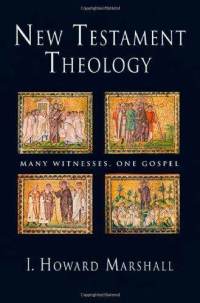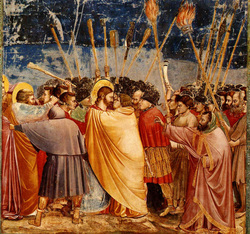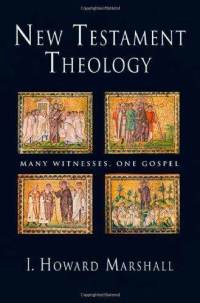 I. Howard Marshall's chapter on John in terms of Dogmas, Doctrines, Distinctives, and Details.* Dogmas. In John, Marshall rightly recognizes Jesus' claim to preexist Abraham and sees support for Christ claiming “parity with God,” but his insistence feels lacking in some areas (502). He accurately captures the main theme as Jesus is the Messiah and Son of God “who came into the world to bear witness to the truth and to give his life so that all people might have the opportunity of receiving eternal life through faith in him” (512). From here, Marshall wonderfully describes seven principal points that impact Christology, being the Logos's: 1) divine eternal nature, 2) responsibility for creation, 3) bringer of light (salvation), 4) rejection by the world, 5) human nature, 6) witnessed by disciples, and 7) the mediator of full blessing (492-493). These are summed up in Christ's role and status, where he is: God's sent one (implying that it is God's will and purpose to save the world), and the founder of salvation (not the “Revealer” so Bultmann or “mythological divine figure” so Ernst Kasemann) (512). The Bultmannian school is cast as only “superficially plausible” and “breaks down under closer inspection” since Salvation goes much deeper, being a “life in relationship with God” (520). This demands that “faith is not only an intellectual acceptance of the message, but also a total commitment of the person to Jesus and to God” since faith is a continuing relationship and not an aorist event (521).
0 Comments
 'Kiss of Judas' by Giotto ca. 1304 'Kiss of Judas' by Giotto ca. 1304 Scot McKnight's The Warning Passages of Hebrews: A Formal Analysis and Theological Conclusion article in terms of Dogmas, Doctrines, Distinctives, and Details.* Dogmas. McKnight himself asserts that “virtually all commentators and theologians can agree” that Hebrews promotes perseverance in light of eternal punishment (36). All Christians can affirm that “Perseverance is a necessity for those who are God's people” (32), since, whether or not one can lose their salvation, those who are truly saved persevere in faith. Those who don't persevere are either false believers (unregenerate) or in McKnight's view, “lose their faith” (58). Either way, the result is the same: Persevering faith is key to God's plan. Furthermore, McKnight affirms the orthodox Christian belief for the lack of perseverance, “that those who do not persevere until the end will suffer eternal punishment at the expense of the wrath of God” (36).  I. Howard Marshall's chapter on Ephesians in terms of Dogmas, Doctrines, Distinctives, and Details.* Dogmas. Marshall sees support for the Holy Spirit as a “personal being rather than an impersonal power” since in Ephesians 4:30 the Holy Spirit is able to be grieved by human conduct (387). He also affirms the vital role of the Holy Spirit in the life of the believer throughout Ephesians (395). Doctrines. Marshall makes reference to the Moral Example theory of Atonement as unsupported by Ephesians 5 (which supports human forgiveness as requiring divine forgiveness) since “Christian teaching on behavior was continually buttressed by central theological statements” to the point that they were made “almost causally in an ethical instruction” (387). |
AuthorBrett Yardley: Categories
All
Archives
January 2019
|


